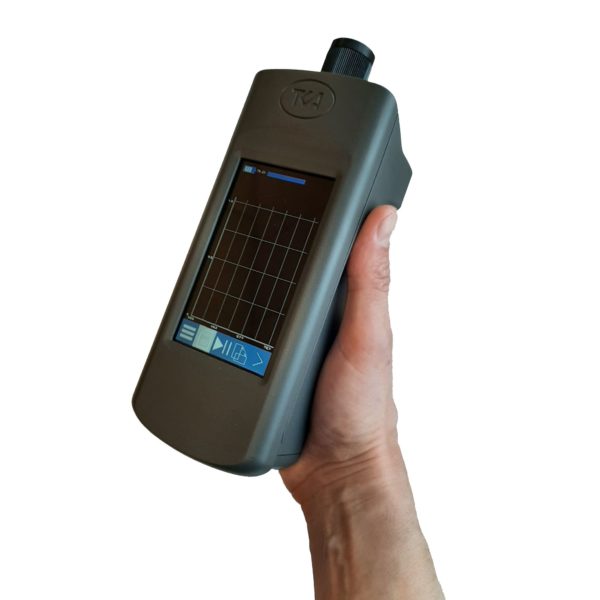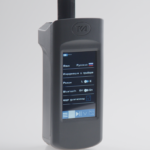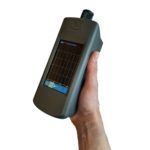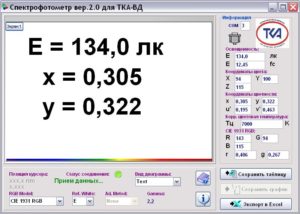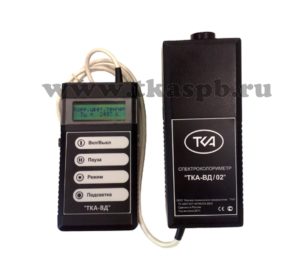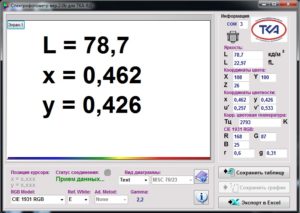Spectroradiometer “TKA-Spectr”
PRICE:
PRICE:
180900 руб.
TU 26.51.53-005-16796024-2020.
- Spectroradiometer “TKA-Spectr”
- Cosine corrector
- Power adapter with USB output
- PC communication cable
- Storage medium with software
- Manual
- Passport
- Plastic case
- Transport container
SRD [ W / (m 2 · sr · nm) ] or SID [ W / (m 2 · nm) ] in the range 390-760 nm ,
chromaticity coordinates CIE 1931, 1964, 1976,
correlated color temperature [ K ] ,
color rendering index R a , CRI and the CQS,
radiance [ W / m ] or irradiance [ W / m ] in the range of 390-760 nm ,
PAR radiance [ mol / (m2 · sr · s)] or PAR irradiance (PPFD) [ µmol / (m 2 · s) ] in the range of 400-700 nm ,
luminance [ cd / m² ] or illuminance [ lx ].
Color Touch Screen 4.3 inches . USB / Bluetooth. Built-in battery 3.7 in .
Factory calibration.
- Operation manual “TKA-Spectr” (* .pdf)
- Brief description of YUSUK.73.0001 MI (* .pdf)
- Utility model patent
- Description
- Appointment
- Application area
- Design and operation
Description
Instrument complete set
- Spectroradiometer “TKA-Spectr”
- Cosine corrector
- Power adapter with USB output
- PC communication cable
- Flash drive with software
- Manual
- Passport
- Plastic case
- Transport container
Main technical characteristics
| Measurement mode | Continuous / Pause |
| Spectral range, nm | 390 ÷ 760 |
| Resolution / discreteness, nm (no more) | 10 / 0.4 |
| Measurement ranges: spectral density of radiance, W / (sr m 2 nm) spectral density of irradiance, W / (m 2 nm) chromaticity coordinates x, y in the MCO 1931 systemgeneral color rendering index R a of self-luminous objects | 10 · 10 -6 ÷ 1.0 10 · 10 -5+ ÷ 0.5 x = 0.004 ÷ 0.734; y = 0.005 ÷ 0.834 1.0 ÷ 100.0 |
| Limits of the permissible value of the relative measurement error of the SPEY (or SPEO) ,% | ± 5.0 |
| Limits of permissible absolute measurement error on the chromaticity coordinate scale, abs. units, for self-luminous objects | ± 0.020 |
| Accepted limits of the absolute error measure correlated color in the temperature range (for white light sources): • from 2000 K to 2300 K • more than 2300 K to 3300 K • more than 3300 K to 5100 K • more than 5100 K up to 7,200 K • more than 7,200 K up to 10,000 K | ± 50 |
| Limits of permissible absolute error in measuring the general color rendering index of self-luminous objects ΔR a | ± 3.0 |
| The limits of the additional relative error of the spectroradiometer when measuring energy quantities, due to the change in the sensitivity of the photodiode array when the air temperature changes by every 10 ° С in the range from 0 to +40 ° С,% | ± 1.0 |
| Indication ranges: luminance of continuous, cd / m 2 illuninance of continuous radiation, lx radiance of continuous, W / (m 2 sr) irradiance of continuous radiation, W / m 2 correlated color temperature, K PAR radiance in the range of 400 ÷ 700 nm, μmol / (m 2 s sr) PAR irradiance in the range 400 ÷ 700 nm, μmol / (m 2 s) | 0.1 ÷ 60 000 1 ÷ 200 000 5 · 10 -4 ÷ 1000 1 · 10 -4 ÷ 2000 1600 ÷ 50 000 0.01 ÷ 500 0.1 ÷ 2000 |
| Calculated parameters: weighted radiance in the range 390 ÷ 760 nm , W / (m 2 sr) weighted irradiance in the range 390 ÷ 760 nm , W / m 2 color coordinates in MCO systems chromaticity coordinates in MCO systems dominant wavelength λ s , nm color rendering indices of self-luminous objects difference between brightness in conditions of twilight and daytime vision color difference with an arbitrary reference source | blue light L B , burn hazard L R blue light E B , burn hazard E R 1931 XYZ and 1964 XYZ 1964 XYZ, 1976 u’v ‘and 1976 L * a * b *CRI и CQSS/PΔE*ab |
| Receiver | Polychromator, 1024-pixel array of silicon photocells |
| The minimum diameter of the photometric area, mm | 15 |
| Signal exposure time, s | 0.007 ÷ 4 |
| Measurement time, s , no more | 10 |
| Maximum output power of Bluetooth, class 2, mW | 2.5 |
| The maximum amount of supported micro SD, GB | 2.0 |
| Time of continuous operation of the spectroradiometer, h , not less | 8 |
| Spectroradiometer service life, years | 7 |
Mechanical data of the device
- Ambient temperature: 0 to +40 ° C
- Weight of the device with a power supply: no more than 1.0 kg
- Overall dimensions: no more than 250 (L) x 100 (B) x 80 (H) mm
- Interface: USB / Bluetooth
- Power supply: built-in battery 3.7 The
On the underside of the device there is a threaded socket (1/4 ″) for mounting on a tripod
- Operation manual “TKA-Spectr”
- Brief description of YUSUK.73.0001 MI
- Utility model patent
The devices are designed to measure radiometric (SPEYA, SPEO) and colorimetric (chromaticity coordinates, correlated color temperature, color rendering indices) characteristics of self-luminous objects in the visible spectral region with subsequent processing, recording and printing of the information received in graphic and digital form.
The device is recommended for research at the design stage of new LED greenhouse phytolamps and for assessing the energy efficiency of a lighting device during operation.
In world practice, an agreement has been adopted that allows us to define and measure the PAR irradiance as a falling quantum flux in the range from 400 to 700 nm without involving any experimental plant reactions . For a quantitative transition from units of energy power to units of luminous power, we use a standard expression (see “Lighting measurements” by MG Kozlov, KA Tomsky, p.37).

Structurally, the spectroradiometer is made as a single unit. There is a lens on the front end cap of the body, the angle of view is 2 degrees (BRIGHTNESS mode).
Additionally, the device is equipped with a cosine corrector. The aperture of the cosine corrector is 180 degrees and eliminates a number of optical-geometric matching problems (LIGHT mode). Direct measurements in two modes.
Thanks to a careful selection of the functions used and the displayed parameters, it was possible to minimize the number of various menus and screens. The size of the displayed characters allows you to confidently read the instrument readings up to one meter.


